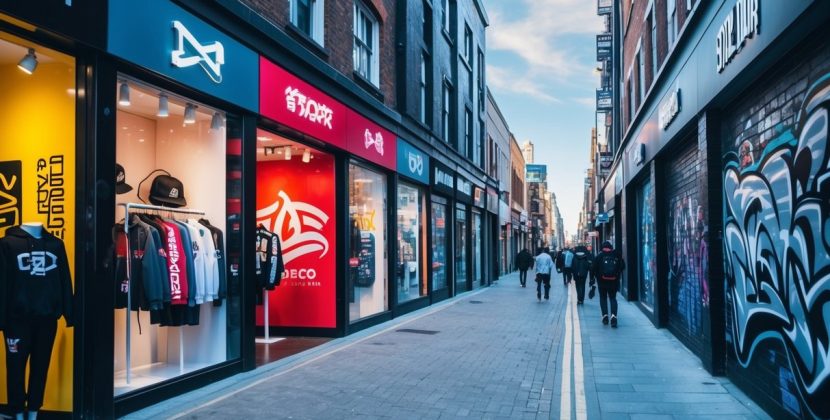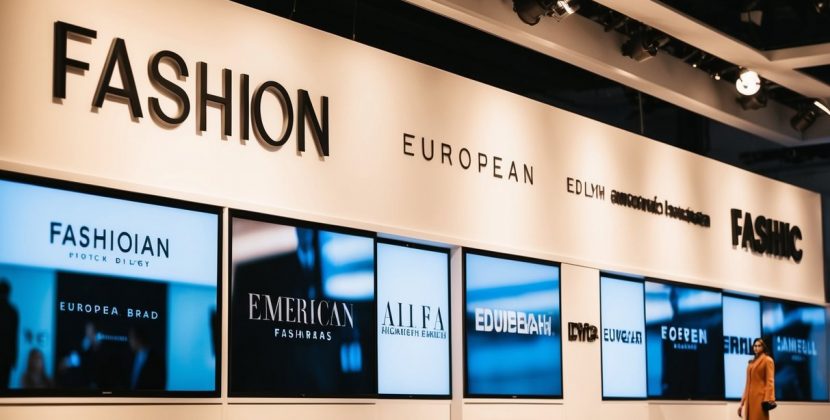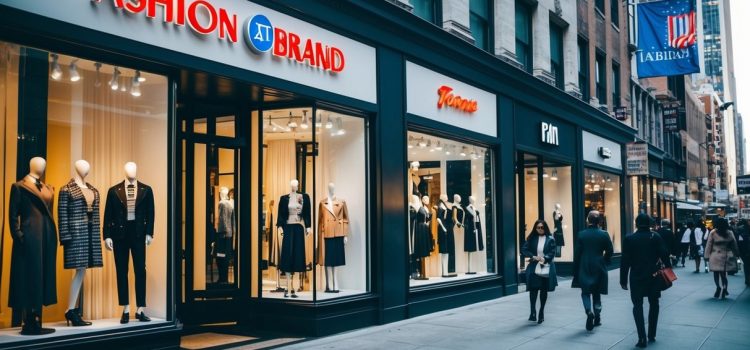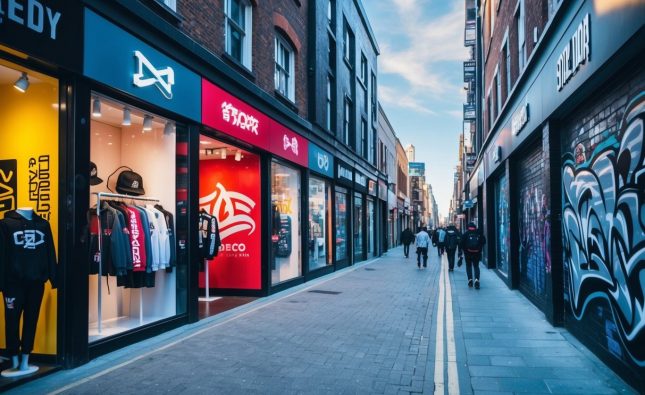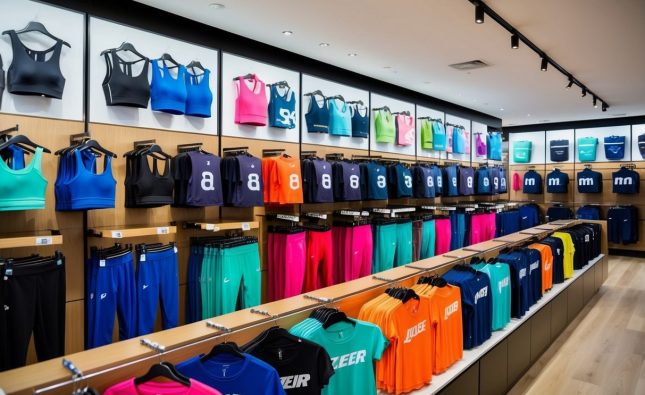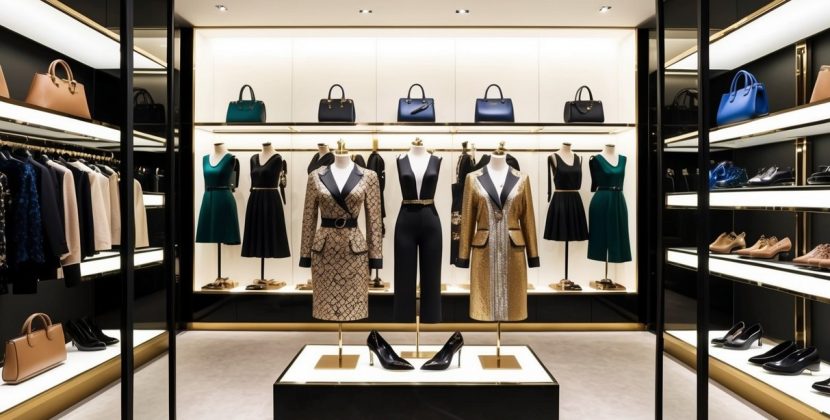
American fashion brands have played a crucial role in shaping global style and trends. These iconic labels represent a blend of innovation, heritage, and cultural influence that resonates with consumers today. From classic styles to modern casual wear, these brands have left an indelible mark on the industry.

Each brand has its unique story, contributing to the tapestry of American fashion. Names like Levi’s, Ralph Lauren, and Calvin Klein evoke images of quality, creativity, and American lifestyle. Their designs often reflect the values and aspirations of their times, making them not just clothing lines but cultural icons.
Exploring these brands offers insight into how American fashion has evolved and its impact on global style. Readers will find an engaging look at the heritage behind these labels and what sets them apart in a competitive market.
Evolution of American Fashion
American fashion has undergone significant transformations throughout the decades. The journey reflects cultural shifts, societal changes, and diverse influences that shaped what people wear across the nation.
Post-War Influence
After World War II, American fashion experienced a renaissance. Soldiers returning home influenced styles, bringing a sense of practicality and masculinity.
The 1950s welcomed tailored suits, elegant dresses, and new leisure styles. Designers like Claire McCardell and Norman Norell championed ready-to-wear collections, making high fashion accessible.
Movies and television also played a vital role in popularizing trends. Iconic figures like Audrey Hepburn and Marilyn Monroe helped shape the public’s tastes and inspired countless designs.
Rise of Casual Wear
The 1960s and 1970s marked a significant shift towards casual wear. This era saw the rise of youth culture and a rejection of conventional styles.
Jeans became a staple, embraced by all social classes. Brands like Levi’s and Wrangler solidified their place in fashion history.
Designers began to incorporate elements from street style, blending comfort and individuality. The introduction of T-shirts, sneakers, and casual dresses reflected a more relaxed American lifestyle, appealing to all demographics.
Luxury and High Fashion
In the late 20th century, luxury and high fashion emerged as significant segments in American fashion. Designers like Ralph Lauren and Donna Karan brought sophistication to everyday wear.
Runway shows began to showcase bold visions, merging art with fashion. High-end brands gained international recognition, further establishing the U.S. as a fashion hub.
Collaboration between brands and artists became common, leading to innovative designs. Events like New York Fashion Week highlighted the importance of American fashion on a global scale.
Iconic American Fashion Brands
American fashion brands have significantly influenced style around the globe. They blend classic aesthetics with modern sensibilities, showcasing the diversity of American culture.
Ralph Lauren
Ralph Lauren, founded in 1967, is synonymous with classic American style. The brand became famous for its Polo shirts and preppy attire, embodying an aspirational lifestyle.
Lauren’s design philosophy combines elegance with comfort. Signature pieces often feature the iconic polo player logo, which has become a recognizable symbol worldwide.
The brand extends beyond clothing into home furnishings and fragrances. Its ability to evoke a timeless appeal ensures Ralph Lauren remains a staple in American fashion.
Tommy Hilfiger
Tommy Hilfiger, established in 1985, is known for promoting a youthful, laid-back aesthetic. The brand blends classic American styles with a twist of preppy and street influences.
Notable for the red, white, and blue logo, Hilfiger emphasizes Americana. His designs often reflect a mix of casual and sophisticated elements, appealing to a diverse audience.
Collaborations with celebrities and influencers have kept the brand relevant. Hilfiger’s commitment to inclusivity in fashion further cements its status as an iconic American brand.
Calvin Klein
Calvin Klein, founded in 1968, revolutionized the fashion industry with its minimalist designs and provocative advertising. The brand is particularly recognized for its underwear and denim lines, which have set trends.
Klein’s designs emphasize clean lines and tailored silhouettes. His approach has redefined modern elegance, merging sophistication with simplicity.
The brand also addresses contemporary issues, such as body positivity and diversity. This focus keeps Calvin Klein at the forefront of American fashion innovation.
Donna Karan (DKNY)
Donna Karan launched her label in 1984, aiming to create versatile and luxurious women’s wear. Her vision centered on the modern woman’s lifestyle, blending comfort with style.
The DKNY brand emphasizes urban sophistication, often drawing inspiration from New York City. Classic staples include tailored dresses and chic, easy-to-wear separates.
Karan’s commitment to quality and functionality resonates with many. Her designs reflect the essence of city living, making DKNY a quintessential American brand.
Cultural Impact and Legacy

Iconic American fashion brands have significantly influenced culture, shaping perceptions of style and identity across various platforms. Their legacy spans Hollywood, music, and international views, marking them as powerful symbols of American creativity and innovation.
Hollywood’s Influence
American fashion brands have often found their place in Hollywood, with celebrities donning these labels on red carpets and in films. This visibility enhances brand prestige and drives consumer desire. Iconic labels like Ralph Lauren and Calvin Klein have become synonymous with a certain lifestyle, appearing in numerous movies and TV shows.
The portrayal of these brands often aligns with aspirational imagery, creating a fashion language that resonates with audiences. Fashion designers frequently collaborate with films, creating costumes that reflect characters’ personalities while promoting their brands. This synergy has cemented American fashion within the framework of popular culture.
Fashion and Music Crossover
Music and fashion have long intertwined, with American brands frequently appearing in music videos and performances. Artists such as Beyoncé, Elvis Presley, and Jay-Z have not only worn these brands but also endorsed their styles through their performances, thus shaping cultural trends.
The music scene propels brand visibility, making labels like Tommy Hilfiger and Supreme crucial to youth culture. Streetwear brands have found a home in the music industry, often creating exclusive lines through collaborations with musicians. This intersection amplifies their relevance and showcases their evolution within contemporary culture.
International Perceptions
The global perception of American fashion brands varies, but their influence is undeniable. Many international consumers associate these brands with luxury and innovation. Designer labels present a unique blend of American optimism and creativity, appealing to diverse markets.
In many countries, American fashion sets trends and drives style movements. Brands like Coach and Michael Kors have fostered a distinct image abroad, drawing consumers eager to emulate the American aesthetic. Additionally, the storytelling behind these brands often resonates deeply, reflecting values like individuality and freedom, which enhances their international appeal.
Modern Trends and Sustainability
Sustainability has become a key focus for American fashion brands. They are increasingly adopting eco-friendly practices in production and sourcing materials.
Key Trends:
-
Eco-conscious Materials: Many brands use organic cotton, recycled fabrics, and biodegradable options. This shift reduces environmental impact.
-
Transparency: Consumers demand transparency in sourcing. Brands disclose information about supply chains to build trust.
-
Circular Fashion: Concepts like recycling, upcycling, and rental models are gaining traction. This approach extends the life cycle of garments and minimizes waste.
Innovative Initiatives:
-
Sustainable Production: Brands invest in technology that decreases water usage and carbon emissions during manufacturing.
-
Local Sourcing: Utilizing local resources not only supports communities but also reduces transportation emissions.
-
Minimalist Designs: Focusing on timeless, versatile pieces encourages consumers to purchase less frequently, promoting a shift away from fast fashion.
These trends reflect a growing commitment among American fashion brands to balance style, innovation, and environmental responsibility. As consumers become more aware of their choices, brands are adapting to align with these expectations.

